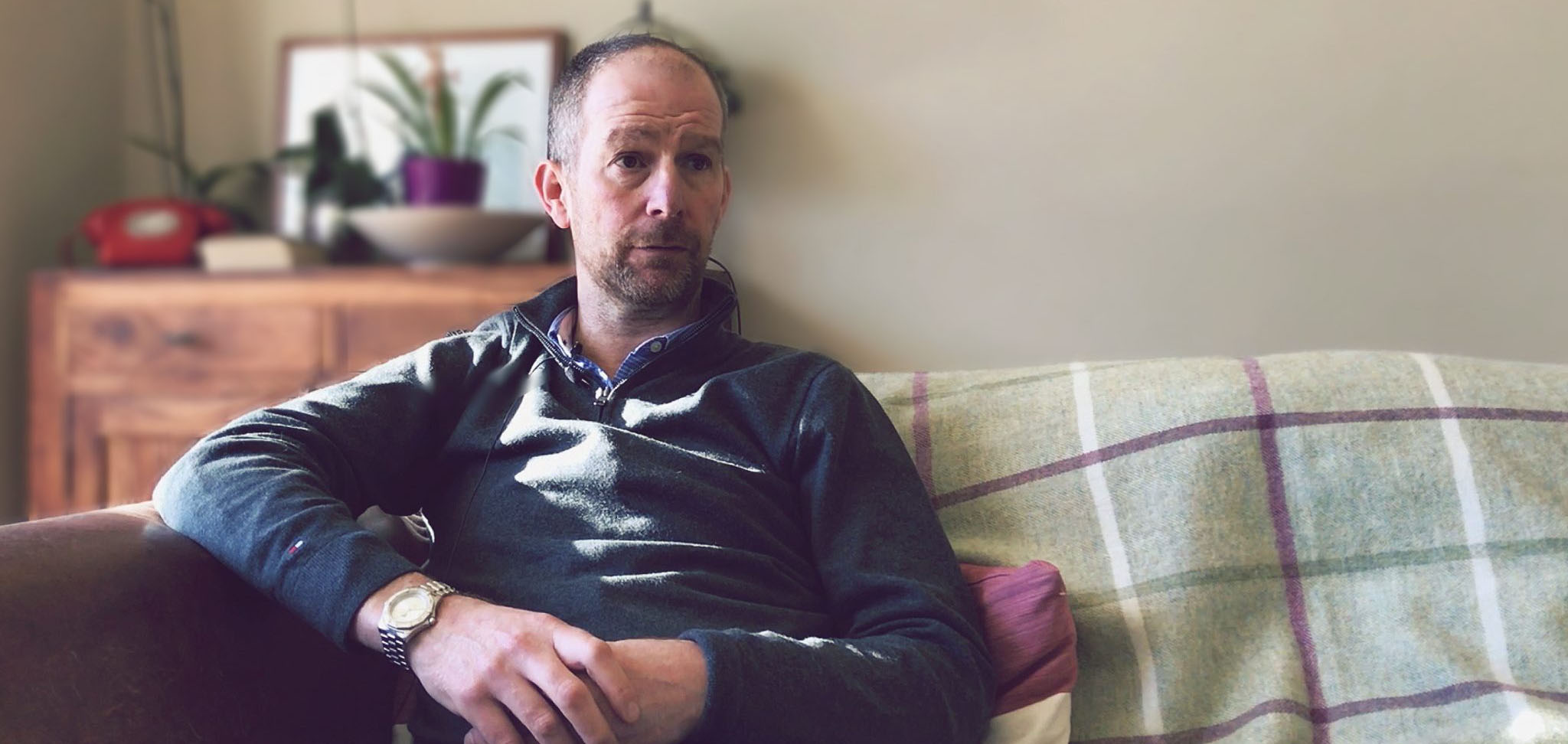
In his films, Gregor discusses what he felt like prior to his cardiac arrest and his lack of memory around what happened. He talks about his experiences in hospital and how he felt, both emotionally and physically, once he had been discharged home. He shares how he tried to get back to as normal a life as was possible, without going through a formal rehabilitation programme, and looks at practical issues such as returning to work. Finally, Gregor reflects on what life is like for him and his family now, three years following his OHCA.
In this video, Gregor discusses what happened when he had his cardiac arrest. He has no memory of the event and, apart from feeling slightly unwell prior to his cardiac arrest, had no indication that he was about to suffer a life-changing event. This is not unusual – most people who have a cardiac arrest remember nothing until they wake up in hospital. The majority of people who have an OHCA have no previous history of heart problems and, like Gregor, many of them are relatively young, fit people.
Gregor’s wife, Judy, is a trained nurse and administered CPR. Gregor’s two children were closely involved in the resuscitation efforts. The call-handler who took the 999 call correctly realised that this was a cardiac arrest and gave CPR instructions over the phone.
Gregor talks about what it was like in hospital and when he first came home. His first memory of his cardiac arrest is waking up in a hospital bed. He felt very safe in hospital, although he admits to being scared at the same time. Conflicting emotions are not uncommon and it can be very difficult, as Gregor says, to ‘get your head around what has happened.’
While he was in hospital, Gregor underwent a number of investigations to find out why he had a cardiac arrest. These tests showed that he suffers from a heart condition known as cardiomyopathy which could, potentially, lead to a further cardiac arrest in the future. While in hospital, Gregor had an implantable cardioverter defibrillator (ICD) fitted.
Gregor discusses what he felt like once he was discharged from hospital and how he felt, both physically and emotionally.
In this film, Gregor discusses the support he was offered after his OHCA. He was offered a lot of advice and information by the healthcare professionals and by his GP. When he first came home he was still very tired and his concentration levels were not good. It took some time for his medication to get sorted, particularly the drug that he took to stop his blood clotting. Gregor looked for information himself on the internet, as he was unaware of any specific support that he could access. He recognised the importance of talking, with someone other than his family, about what had happened to him and so he organised some sessions with a clinical psychologist.
In this film, Gregor talks about his recovery. As he was so fit and well prior to his OHCA, Gregor was not offered formal cardiac rehabilitation. He was keen to be independent but found a lot of the advice available to him on the internet was contradictory and confusing. He worried about his ability to return to exercise and fitness. Although Gregor’s employers were very helpful, in that he was offered a phased return to work, he felt that they did not really understand what had happened or the impact of the OHCA on his health. Because he looked the same as he had prior to the OHCA, it was difficult for his colleagues to realise that he was very different. Gregor found it hard accepting that he could no longer function in the same way at work as he had previously. The nature of his work had changed. Getting back to ‘normal’ took longer than he had expected.
In this film, Gregor reflects on the people who helped him when he had his OHCA and supported him in his recovery. He acknowledges how crucial his family and friends have been. The family continue to talk about what happened, even now, three years on. Gregor admits that he still finds it difficult to accept and that he is still ‘dealing with it.’
Defibrillation
Cardiac Investigation
Implantable Cardioverter Debrillators
Cardiac Rehabilitation
Self Management
Practical
Exercise
Inherited Conditions
Mental Health & Wellbeing
Relaxation
Please answer each of the following questions. All results are completely anonymous and used for quality assurance purposes only.